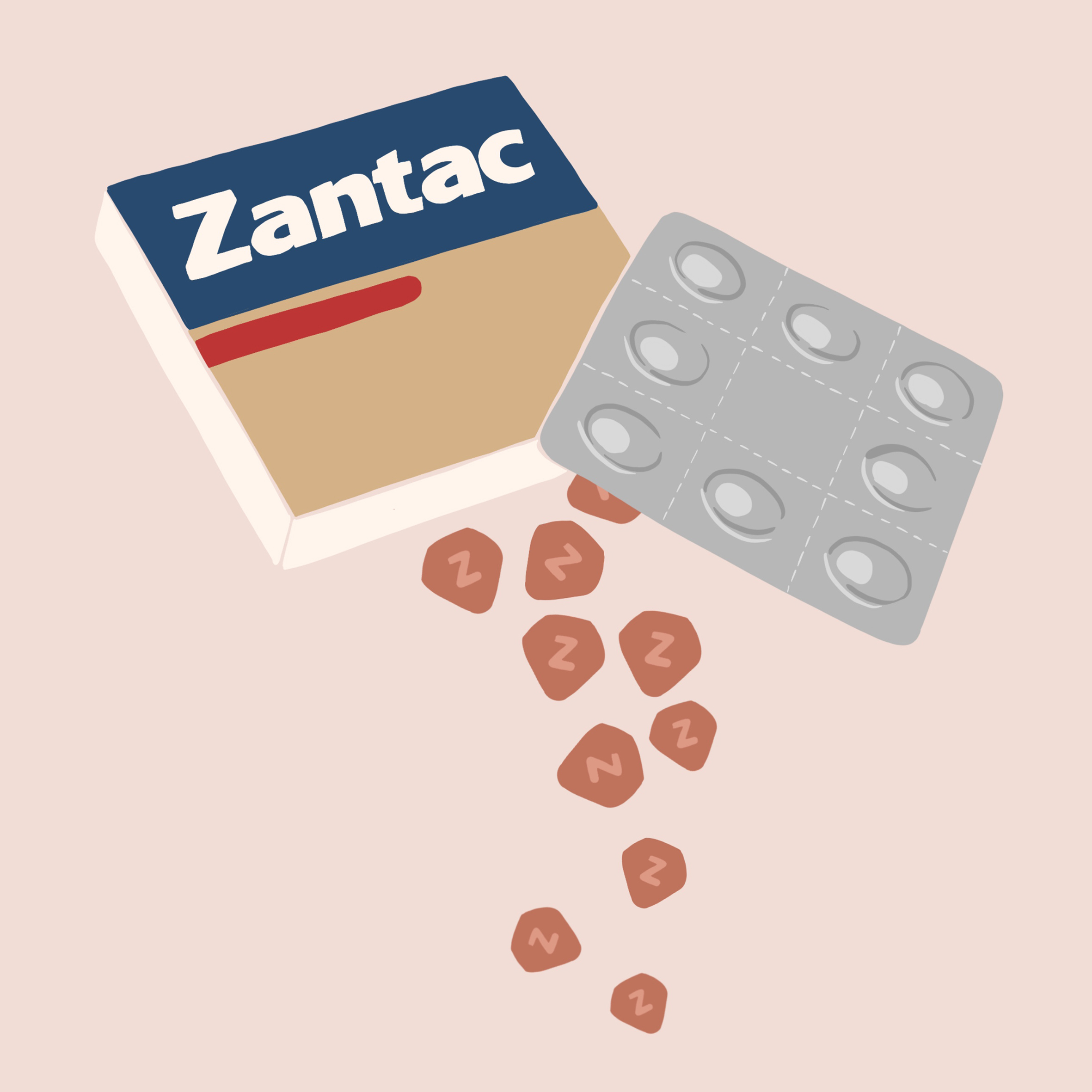With the 2019 voluntary recall of ranitidine (brand name Zantac) and nizatidine (brand name Axid) products in the U.S. well underway due to contamination by the carcinogen NDMA, the FDA has listed several alternative drugs to treat heartburn and related conditions.
Proton Pump Inhibitors
Proton pump inhibitors (PPIs) are a class of drugs that work by irreversibly blocking the secretion of acid into the stomach by specific enzymes. As PPIs have been noted to be more effective than ranitidine and nizatidine, patients commonly use these Zantac alternatives.
There are three PPIs that the FDA lists as alternatives to ranitidine and nizatidine:
- Esomeprazole (brand name Nexium)
- Lansoprazole (brand name Prevacid)
- Omeprazole (brand name Prilosec)
It’s important to note that PPIs, when used as Zantac replacement options, may increase the risk of gastric infections. The medications can also reduce the absorption of magnesium and vitamin B12.
Read more about how the overuse of PPIs may affect the body, potentially leading to a higher risk of stomach flu, stomach cancer and gut infection.
Other H2 Histamine Receptor Antagonists
Both ranitidine and nizatidine are H2 histamine receptor antagonists, which work by blocking histamine from activating the stomach lining cells that create and secrete acid into the stomach.
Fortunately, NDMA contamination appears to just be limited to ranitidine and nizatidine, and there are two other drugs from this class that can work as Zantac alternatives. The FDA lists two options for H2 histamine receptor antagonists as safe ranitidine replacements:
- Famotidine (brand name Pepcid)
- Cimetidine (brand name Tagamet)
H2 histamine receptor antagonists are pretty well tolerated in general, but cimetidine is particularly associated with a range of adverse effects including gynecomastia, impotence, vitamin B12 deficiency, anemia, thrombocytopenia, neutropenia, and pancytopenia. H2 histamine receptor antagonists can also be associated with altered mental status, headaches, dizziness, and restlessness, especially in older patients.
Both classes of drugs should only be taken under physician advisement for the appropriate dose and duration of treatment. Long-term inappropriate use of either drug class can increase the risk of adverse effects. The use of these Zantac alternatives should also be paired with appropriate lifestyle modifications to reduce exacerbation of stomach acid conditions.
Update: As of April 1, all ranitidine products have been removed from the U.S. market.
